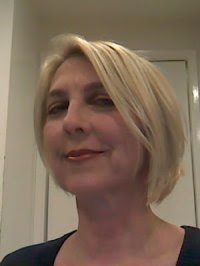The Invisible Work Of The Neighborhood Councils

Kim Thompson
On Monday, February 1 at 1:00pm, the Los Angeles City Council will meet to consider budget cuts to neighborhood councils. Such move would impact our neighborhood local councils, Granada Hills North and Granada Hills South, and the councils are asking Granada Hills residents to attend the meeting in a show of support, or at least contact Councilman Greig Smith and other Budget and Finance Committee Members via email and let them know that you want neighborhood council funding to continue.
I know what you're going to say next: "Why should I care? What does the Neighborhood Council even do, anyway?"
I've actually wondered the same thing myself, so I talked to Granada Hills North Neighborhood Council co-founder Kim Thompson.
Thompson is more than aware that the work of neighborhood councils is often invisible to the communities they serve. She gives me an example: "There is a three-story building proposed on the old North Valley Jewish Community Center Lot. It would be a dormitory, but after that, then what? It could turn into apartments. But that area's not zoned for that, it was never intended for that. If we work for two years and stop that from being built, people driving down Rinaldi won't even know that we stopped that, because there's nothing to see.
"With the Sunshine Canyon landfill, at least that's something people can see. You can show them pictures, and a lot of people can even smell it. But most things we do are things you can't see. People don't know it, but behind the scenes councils are working really hard to keep it clean, keep graffiti under control, to keep development controlled, to say 'We want you to keep zoning the way it is.'"
Graffiti removal is another of the neighborhood councils' invisible tasks; you can't see something that's not there. "Before neighborhood councils were funded, if residents wanted to beautify a corner or paint over graffiti, they had to use their own money," Thompson says.
Thompson explains that neighborhood councils were created in response to the Valley secession movement circa 1999. "They were trying to keep the secessionists at bay, so they put in the charter the creation of neighborhood councils. Then we would have money to make copies, buy gas, be a part of the city. It made it harder for them to ignore us. We were supposed to use that money to mobilize people, put out newsletters, to tell people about things that could affect them that they might not even know about."
Neighborhood Council funds are also used for education – "Educating yourself so you can help the neighborhood," Thompson explains. "Some members go to UCLA and take classes on planning and land use. I know that bores some people, but for the planning and land use committee members on the neighborhood council, it's immensely useful. At those classes, a lot of the guest speakers are these developers teaching people how to get around environmental laws. So when developers come and try to do that in your neighborhood, neighborhood councils' Planning and Land Use members can say, 'Don't try to pull that with me!'"
Neighborhood councils can also use their power to resist the influence of graft. "Let's say you're a developer and and you want to build something where it shouldn't be, so you donate money to the councilman who's running. The councilman needs money, so he's going to take it. But that's what we're about, protecting the neighborhood, protecting the community. The councilmen don't really want us here, because we put a halt to that project.
"Planning and land use are vitally important here. And the neighborhood councils are quietly trudging along, fighting, and people don’t really know that."
The Budget and Finance Committee will meet at 1 PM in the City Council chambers (City Hall 340). Call GHNNC Outreach Chair Sue DeVandry at (818) 360-3537 for more information on the meeting, on ridesharing and on the overall issue.
City Council Budget and Finance Committee member email links:
Bernard Parks
Greig Smith
Bill Rosendahl
Jose Huizar
Paul Koretz
Well, great story Linda.
ReplyDeleteThat meeting yesterday lasted from 1 PM - 12:26 AM! There were hundreds of people in attendance and the Budget and Finance Committee voted to cut half of the neighborhood council budgets, from $45,000 a year to $22,500 a year and take away our rollover funds. Rollover money is the money that we didn't use from year to year for various reasons. For example, GHNNC saved money for an office. Luckily we got the office but, we have rollover money that we saved because we're good stewards of the taxpayer money that we are in charge of.
So the next move is going to City Council when it is heard there for a full vote of all 15 Council members. Let's hope that they don't take the Committee's recommendations because we need the money to continue the work that we've been doing.
Otherwise, you may very well see 3-4 story buildings popping up on Rinaldi!
In the meantime, I hope everyone goes out to vote for their NC Board on March 2.